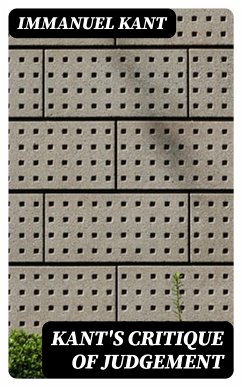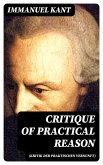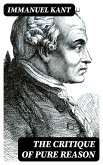Immanuel Kant's "Critique of Judgement" represents a pivotal exploration of aesthetics and teleology, forming a crucial part of his critical philosophy. This work, written in 1790, bridges the gap between the empirical inquiries of the "Critique of Pure Reason" and the moral imperatives of the "Critique of Practical Reason." Kant employs a meticulous analytical style, melding metaphysical inquiry with a profound examination of human experience, particularly in regard to beauty and sublime. He seeks to articulate the principles underlying aesthetic judgments and the experience of nature, asserting the significance of subjective feelings in the comprehension of universal concepts. Kant, a central figure in modern philosophy, draws on his background in metaphysics and epistemology to craft this text. Living in the Enlightenment era, Kant's engagement with the prevalent ideas around human understanding and moral philosophy profoundly influenced his treatment of aesthetic judgment, posing significant questions about the role of the viewer and the object of beauty. His rigorous intellectual upbringing in Königsberg, alongside his discussions with contemporaries, crystallized his belief in the interrelation of aesthetic experience and rational thought. For scholars, students, and lovers of philosophy alike, "Critique of Judgement" offers essential insights into the complexities of human perception and the foundations of aesthetic appreciation. Kant's contemplative approach urges readers to reconsider not only the nature of beauty but also the implications of their own judgments within a broader philosophical context. It is a compelling read for anyone seeking to understand the intricate balance between subjective experience and objective principles.
Dieser Download kann aus rechtlichen Gründen nur mit Rechnungsadresse in A, B, BG, CY, CZ, D, DK, EW, E, FIN, F, GR, H, IRL, I, LT, L, LR, M, NL, PL, P, R, S, SLO, SK ausgeliefert werden.









